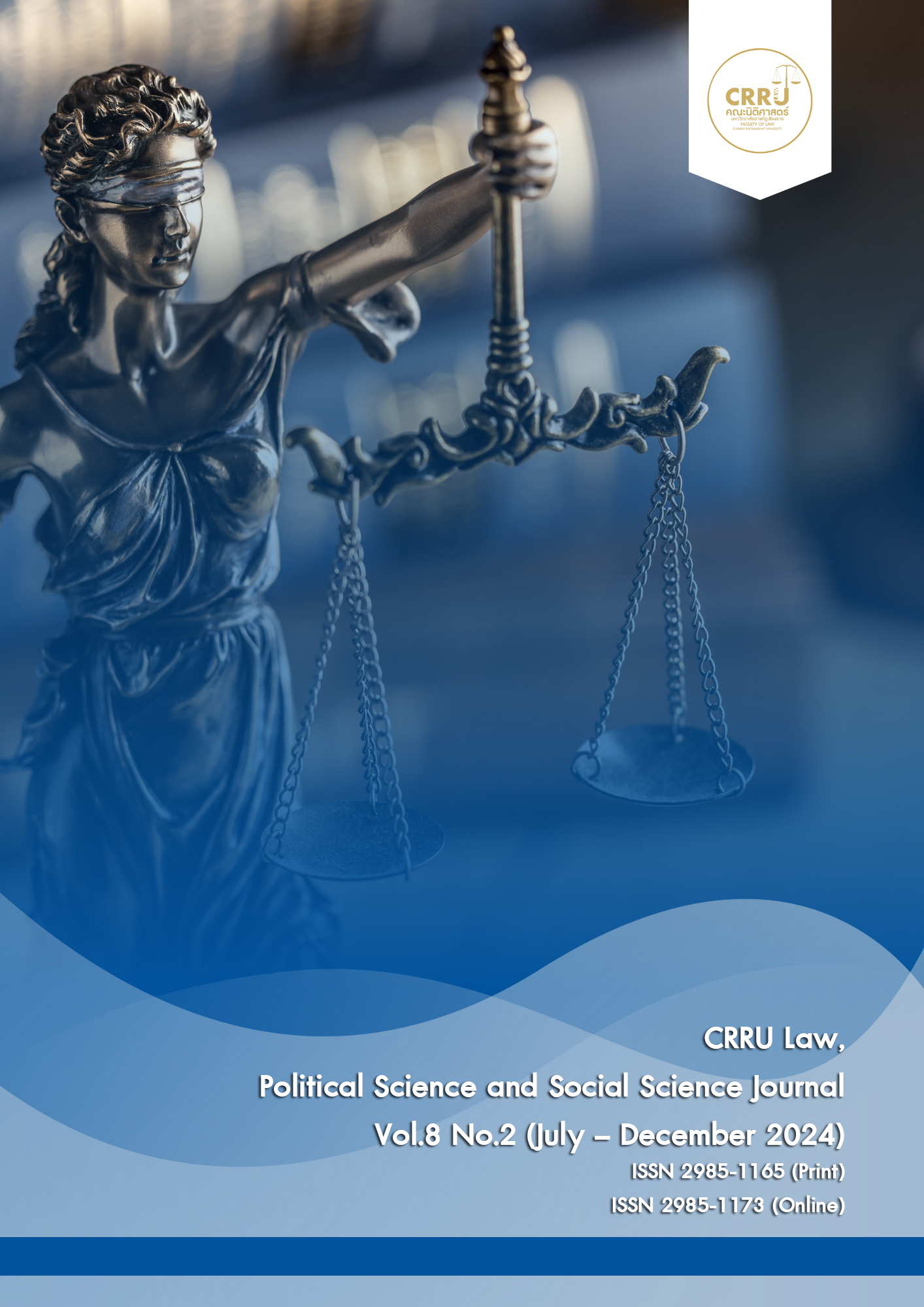การพัฒนารูปแบบการแก้ปัญหาฝ่าวิกฤตโควิด-19 และความท้าทายภาคอุตสาหกรรม SMEs
Main Article Content
บทคัดย่อ
การวิจัยครั้งนี้มีวัตถุประสงค์ 3 ข้อ ได้แก่ 1) เพื่อศึกษาสภาพและปัญหาการดำเนินงานของวิสาหกิจขนาดกลางและขนาดย่อมในภาวะวิกฤตโควิด-19 2) เพื่อศึกษาปัจจัยที่ส่งผลต่อการแก้ไขปัญหาของวิสาหกิจขนาดกลางและขนาดย่อมในภาวะวิกฤตโควิด-19 และ 3) เพื่อพัฒนารูปแบบการแก้ปัญหาฝ่าวิกฤตโควิด-19 สำหรับภาคอุตสาหกรรมวิสาหกิจขนาดกลางและขนาดย่อม ประชากรในการวิจัยครั้งนี้ แบ่งออก 3 กลุ่ม กลุ่มที่หนึ่ง กลุ่มผู้ให้ข้อมูลหลัก จำนวน 3 กลุ่ม รวมทั้งสิ้น 69 คน กลุ่มที่สอง สมาชิกสมาพันธ์เอสเอ็มอีไทย เป็นผู้ประกอบการวิสาหกิจขนาดกลางและขนาดย่อม จำนวน 400 คน และกลุ่มที่สาม กลุ่มผู้ทรงคุณวุฒิ รวมทั้งสิ้น 5 คน โดยใช้เครื่องมือวิจัย 3 แบบ ประกอบด้วย แบบสอบถาม แบบสัมภาษณ์ และแบบสัมภาษณ์โดยใช้แบบประเมิน การวิเคราะห์ข้อมูลใช้สถิติการวิเคราะห์องค์ประกอบเชิงสำรวจ และการวิเคราะห์เนื้อหา
ผลการศึกษาพบว่า รูปแบบการแก้ปัญหาสำหรับภาคอุตสาหกรรมวิสาหกิจขนาดกลางและขนาดย่อมภายใต้วิกฤตโควิด-19 มีดังนี้ 1) จากการศึกษาสภาพปัญหา พบว่าวิสาหกิจขนาดกลางและขนาดย่อมประสบปัญหาหลัก 6 ด้าน ได้แก่ ปัญหาสภาพคล่อง ปัญหาการบริหารจัดการ ปัญหาการปรับตัวสู่ดิจิทัล ปัญหาการเข้าถึงตลาดใหม่ ปัญหาจากนโยบายและการสนับสนุนภาครัฐ และผลกระทบจากวิกฤตโควิด-19 2) จากการศึกษาปัจจัยในการแก้ไขปัญหา พบว่ารูปแบบการแก้ปัญหาประกอบด้วย 5 องค์ประกอบหลัก 34 วิธีการ ได้แก่ (1) การพัฒนาทักษะและกลยุทธ์ของ SMEs (2) การปรับตัวและนวัตกรรมของ SMEs (3) นวัตกรรมและการปรับตัวในธุรกิจ SMEs (4) การบริหารทรัพยากรการเงินและทุน และ (5) นวัตกรรมและการพัฒนาทรัพยากรมนุษย์ และ 3) ได้พัฒนารูปแบบการแก้ปัญหาโดยบูรณาการผลการวิเคราะห์สภาพปัญหา ปัจจัยที่ส่งผลต่อการแก้ไขปัญหา เข้ากับแนวทางการปฏิบัติที่ครอบคลุมการพัฒนาด้านต่างๆ เพื่อให้วิสาหกิจขนาดกลางและขนาดย่อมสามารถรับมือและฟื้นตัวจากวิกฤตได้อย่างมีประสิทธิภาพ 4) ข้อเสนอแนะในการนำรูปแบบการแก้ปัญหาไปประยุกต์ใช้ ควรมีการจัดทำแผนปฏิบัติการให้สอดคล้องกับบริบทและศักยภาพขององค์กร พร้อมทั้งกำหนดตัวชี้วัดและติดตามประเมินผลการดำเนินงานอย่างต่อเนื่อง
Article Details
เอกสารอ้างอิง
กัลยา วานิชย์บัญชา. สถิติสำหรับงานวิจัย. กรุงเทพฯ: จุฬาลงกรณ์มหาวิทยาลัย, 2561.
เกียรติอนันต์ ล้วนแก้ว. “การพัฒนาทักษะด้านเทคโนโลยีสารสนเทศและการสื่อสารในยุคการปฏิวัติอุตสาหกรรม 4.0.” วารสารวิชาการมหาวิทยาลัยธนบุรี 11. ฉ.25 (พฤษภาคม - สิงคหาคม 2560): 282-292.
ธนะพัฒน์ วิริต. “ปัจจัยที่มีอิทธิพลต่อความสำเร็จการดำเนินธุรกิจ (SMEs) จากสภาวะการแพร่ระบาดโรคโควิด-19 ของผู้ประกอบการในจังหวัดปทุมธานี.” วารสารนวัตกรรมการศึกษาและการวิจัย 6. ฉ.2 (พฤษภาคม -สิงหาคม 2565): 458-473.
บุญฑวรรณ วิงวอน. “แหล่งเงินทุนสำหรับ SMEs รูปแบบใหม่ในยุคไทยแลนด์ 4.0.” วารสารบริหารธุรกิจ เศรษฐศาสตร์และการสื่อสาร 13. ฉ.1 (มกราคม – เมษายน 2561): 57-69.
ประไพวรรณ ศุภนคร. “การประยุกต์ใช้ระบบสารสนเทศเพื่อการบริหารทรัพยากรมนุษย์,” วารสารวิชาการมหาวิทยาลัยอีสเทิร์นเอเชีย ฉบับสังคมศาสตร์และมนุษยศาสตร์ 8. ฉ.2 (พฤษภาคม - สิงหาคม 2561): 177-187.
พนิดา พานิชกุล. การพัฒนาทักษะด้านดิจิทัลของประเทศไทย. กรุงเทพฯ: สำนักงานคณะกรรมการดิจิทัลเพื่อเศรษฐกิจและสังคมแห่งชาติ, 2562.
พิชิต ฤทธิ์จรูญ. การกำหนดขนาดกลุ่มตัวอย่างเพื่อการวิจัย. กรุงเทพฯ: เฟื่องฟ้า พริ้นติ้ง, 2561.
สถาบันพระปกเกล้า. แนวทางการส่งเสริมและพัฒนาการมีส่วนร่วมของประชาชนในสถานการณ์โควิด-19. นนทบุรี: สถาบันพระปกเกล้า, 2563.
สุนทรี เจริญชัย. “การพัฒนาศักยภาพของวิสาหกิจขนาดกลางและขนาดย่อมไทยในยุคโควิด-19.” วารสารพัฒนาเศรษฐกิจและสังคม 12. ฉ.2 (2564): 45.
สุภางค์ จันทวานิช. วิธีการวิจัยเชิงคุณภาพ. กรุงเทพฯ: สำนักพิมพ์แห่งจุฬาลงกรณ์มหาวิทยาลัย, 2554.
สำนักงานส่งเสริมวิสาหกิจขนาดกลางและขนาดย่อม. แผนการส่งเสริม SME ฉบับที่ 4 (พ.ศ. 2560-2564). กรุงเทพฯ: สสว., 2560.
สำนักงานส่งเสริมวิสาหกิจขนาดกลางและขนาดย่อม. รายงานสถานการณ์ SMEs ปี 2563. กรุงเทพฯ: สสว., 2563.
Audet, J., & Couteret, P. “Coaching the entrepreneur: Features and success factors.” Journal of Small Business and Enterprise Development 19. No.3 (2012): 515-531.
Baporikar, N. Strategies for SMEs to Overcome Adverse Impact of COVID-19 in the Global Business Ecosystem. In SMEs in the Era of Disruptive Technologies (pp. 227-242). Bingley: Emerald Publishing, 2020.
Bartik, A. W., et al. “The impact of COVID-19 on small business outcomes and expectations.” Proceedings of the National Academy of Sciences 117. No.30 (2020): 17656-17666.
Ben Zaied, R., Louati, H., & Affes, H. “The adaptation mechanisms and resilience capacities of Tunisian SMEs facing the Covid-19 crisis.” Technological Forecasting and Social Change 174. (2022): 121181. https://doi.org/10.1016/j.techfore.2021.121181. accessed July 5, 2020.
Bourletidis, K., & Triantafyllopoulos, Y. “SMEs survival in time of crisis: strategies, tactics and commercial success stories.” Procedia-Social and Behavioral Sciences 148. (2014): 639-644.
Cronbach, L. J. “Coefficient alpha and the internal structure of tests.” Psychometrika 16. No.3 (1951): 297-334.
Etemad, H. “Managing uncertain consequences of a global crisis: SMEs encountering adversities, losses, and new opportunities.” Journal of International Entrepreneurship 18. (2020): 125-144.
Ferreira, J. J., Fernandes, C. I., & Ferreira, F. A. “To be or not to be digital, that is the question: Firm innovation and performance.” Journal of Business Research 101. (2020): 583-590.
Hair, J. F., et al. Multivariate data analysis. 7th ed. Upper Saddle River, NJ: Prentice Hall, 2010.
Isenberg, D. “The entrepreneurship ecosystem strategy as a new paradigm for economic policy: Principles for cultivating entrepreneurship.” Presentation at the Institute of International and European Affairs, Dublin, Ireland, 2011.
Knowles, M. S., Holton III, E. F., & Swanson, R. A. The adult learner: The definitive classic in adult education and human resource development. New York: Routledge, 2014.
Korankye, B. “The Impact of Global Covid-19 Pandemic on Small and Medium Enterprises in Ghana.” International Journal of Management, Accounting & Economics 7. No. 6 (2020).
Kottika, E. et al. “We survived this! What managers could learn from SMEs who successfully navigated the Greek economic crisis.” Industrial Marketing Management 88. (2020): 352-365.
Kuckertz, A., et al. “Start-up survival amid the COVID-19 pandemic: a longitudinal study of resilience factors for new ventures.” Journal of Small Business Strategy 30. No.2 (2020): 71-96.
Narjoko, D., & Friawan, D. “An explorative study of the impacts of the COVID-19 pandemic on MSMEs in Indonesia.” Journal of Entrepreneurship in Emerging Economies, Advance online publication, (2021). https://doi.org/10.1108/JEEE-03-2021-0067. accessed July 5, 2020.
Nisan, O., & Kontan, E. “The effect of COVID-19 on the financial management of SMEs and new strategies: An empirical analysis of the manufacturing sector in Turkey.” Business Excellence and Management 11. No.2 (2021): 90-105.
OECD. “Tackling Coronavirus (COVID-19): SME policy responses.” 2020. https://www.oecd.org/coronavirus/policy-responses/coronavirus-covid-19-sme-policy-responses-04440101/. accessed July 5, 2020.
OECD. “The Digital Transformation of SMEs.” 2021. https://doi.org/10.1787/bdb9256a-en. accessed July 5, 2020.
Revindo, M. D., Tjahjadi, B., & Permatasari, A. “Liquidity management practices of small-and medium-sized enterprises in Indonesia during the COVID-19 pandemic.” The Journal of Asian Finance, Economics and Business 9. No.1 (2022): 255-264.
Saeyang, P., Santiwitpong, P. & Wuthisatian, R. “The Impact of COVID-19 on Small and Medium Enterprises (SMEs) in Thailand: A Case Study of Tourism and Service Sectors.” Journal of Asian Finance, Economics and Business 9. No.2 (2022): 277-285.
Shafi, M., Liu, J., & Ren, W. “Impact of COVID-19 pandemic on micro, small, and medium-sized Enterprises operating in Pakistan.” Research in Globalization 2. (2020): 100018.
Suresh, K. P., & Chandrashekara, S. “Sample size estimation and power analysis for clinical research studies” Journal of human reproductive sciences 5. No.1 (2012): 7-13.
Thorgren, S., & Williams, T. A. “Staying alive during an unfolding crisis: How SMEs ward off impending disaster.” Journal of Business Venturing Insights 14. (2020): e00187. https://doi.org/10.1016/j.jbvi.2020.e00187. accessed July 5, 2020.
Van Laar, E., et al. “The relation between 21st-century skills and digital skills: A systematic literature review.” Computers in Human Behavior 72. (2017): 577-588.
Warren, D. and Dunnett, A. Revealing technical competencies of students: an assessment strategy. Paper presented at the IEEE Education Engineering (EDUCON) – The Future of Global Learning Engineering Education. April 14-16. Madrid, Spain, 2010.
Warsame, A. A. “Innovation and crisis management for small and medium enterprises (SMEs) in the context of COVID-19.” Journal of Innovation and Entrepreneurship 9. No.1 (2020): 1-6.
Wright, P. M., & McMahan, G. C. “Exploring human capital: Putting 'human' back into strategic human resource management.” Human Resource Management Journal 2. No.2 (2011): 93-104.
Yukl, G. Leadership in organizations. Upper Saddle River, NJ: Pearson Education, 2013.
Zuppo, C. M. “Defining ICT in a boundaryless world: The development of a working hierarchy.” International Journal of Managing Information Technology 4. No.3 (2012): 13-22.


